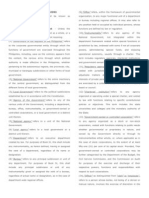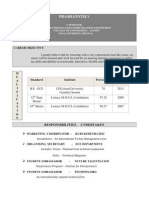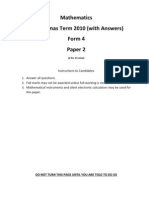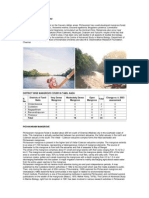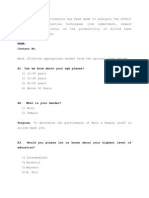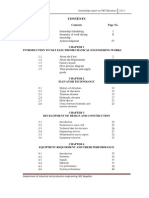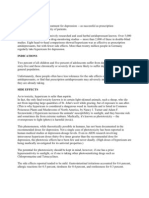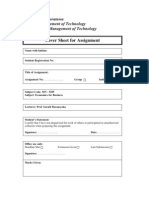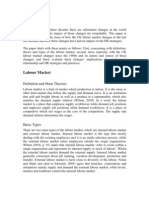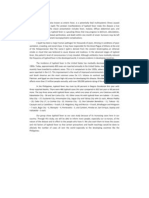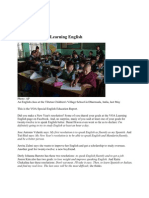PRELIMINARY EXAMINATION The Examination shall comprise two compulsory papers of 200 marks each.
Paper I - (200 marks) Duration: Two hours 1. Current events of national and international importance. 2. History of India and Indian National Movement. 3. Indian and World Geography - Physical, Social, Economic Geography of India and the World. 4. Indian Polity and Governance - Constitution, Political System, Panchayati Raj, Public Policy, Rights Issues, etc. 5. Economic and Social Development - Sustainable Development, Poverty, Inclusion, Demographics, Social Sector initiatives, etc. 6. General issues on Environmental Ecology, Bio-diversity and Climate Change - that do not require subject specialisation 7. General Science. Paper II- (200 marks) Duration: Two hours
1. Comprehension 2. Interpersonal skills including communication skills; 3. Logical reasoning and analytical ability 4. Decision-making and problem solving 5. General mental ability 6. Basic numeracy (numbers and their relations, orders of magnitude, etc.) (Class X level),
Data interpretation (charts, graphs, tables, data sufficiency etc. - Class X level)
7. English Language Comprehension skills (Class X level).
�General Studies: PAPER I 1. History of Modern India and India Culture: The History of Modern India will cover history of the Country from about the middle of nineteenth century and would also include questions on important personalities who shaped the freedom movement and social reforms. The part relating to Indian culture will cover all aspects of Indian culture from the ancient to modern times as well as principal features of literature, arts and architecture. 2. Geography of India: In this part, questions will be on the physical, economic and social geography of India. 3. Constitution of India and Indian Polity: This part will include questions on the Constitution of India as well as all constitutional, legal, administrative and other issues emerging from the politico-administrative system prevalent in the country. 4. Current National Issues and Topics of Social Relevance: This part is intended to test the candidates awareness of current national issues and topics of social relevance in present-day India, such as the following: (i) The Indian economy and issues relating to planning, mobilization of resources, growth, development and employment. (ii) Issues arising from the social and economic exclusion of large sections from the benefits of development. (iii) Other issues relating to the development and management of human resource. (iv) Health issues including the management of Public Health, Health education and ethical concerns regarding health-care, medical research and pharmaceuticals. (v) Law enforcement, internal security and related issues such as the preservation of communal harmony. (vi) Issues relating to good governance and accountability to the citizens including the maintenance of human rights, and of probity in public life. (vii) Environmental issues, ecological preservation, conservation of natural resources and national heritage.
�PAPER - II 1. India and the World: This part will include questions to test candidates awareness of Indias relationship with the world in various spheres such as the following:Foreign Affairs with special emphasis on Indias relations with neighboring countries and in the region Security and defense related matters Nuclear policy, issues and conflicts The Indian Diaspora and its contribution to India and the world 2. Indias Economic Interaction with the World: In this part, questions will be on economic and trade issues such as foreign trade, foreign investment; economic and diplomacy issues relating to oil, gas and energy flows; the role and functions of I.M.F., World Bank, W.T.O., WIPO etc. which influence Indias economic interaction with other countries and international institutions. 3. Developments in the Field of Science & Technology, IT and space: In this part, questions will test the candidates awareness of the developments in the field of science and technology, information technology, space and basic ideas about computers, robotics, nanotechnology, biotechnology and related issues regarding intellectual property rights. 4. International Affairs and Institutions: This part will include questions on important events in world affairs and on international institutions. 5. Statistical analysis graphs and diagrams: This part will test the candidates ability to draw conclusions from information presented in statistical, graphical or diagrammatical form and to interpret them.
�Paper I: Principles of Geography A. Physical geography 1. Geomorphology 2. Climatology 3. Oceanography 4. Biogeography 5. Environmental Geography
B. Human Geography 1. Perspectives in Human Geography 2. Economic Geography 3. Population and settlement Geography 4. Regional Planning 5. Models Theories and laws in Human geography Paper II: Geography of India 1. Physical settings 2. Resources 3. Agriculture 4. Industry 5. Transport communication and Trade 6. Cultural settings 7. Settlements 8. Regional development and planning 9. Political aspects 10. Contemporary issues
NOTE: Candidates will be required to answer one compulsory map question pertinent to subjects covered by this paper.
